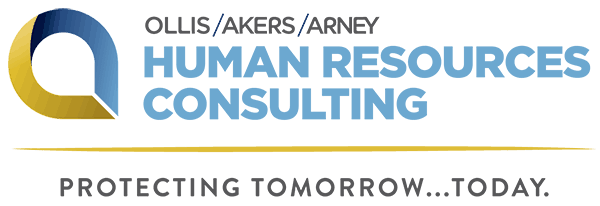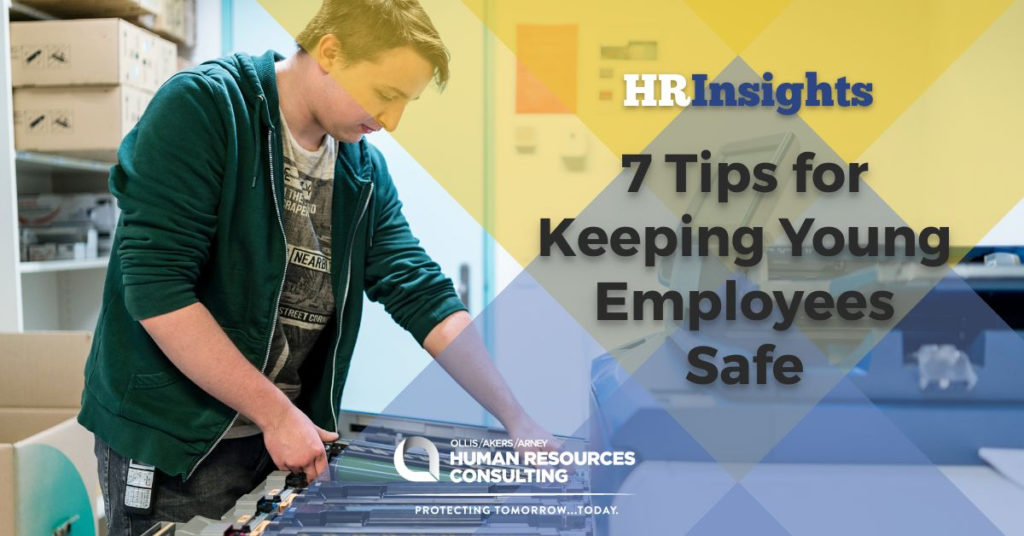The U.S. Department of Labor (DOL) recently reminded employers hiring youth-aged workers to review workplace practices and comply with federal child labor laws to ensure these hires have a safe and beneficial experience.
In 2021, the DOL indicated workplace injuries and illnesses among youth-aged employees—those who are under 18 years old—have been rising since 2017. Employers most commonly hire young workers in the summer, with July typically being the peak employment month. Employers should do all they can to ensure the safety of their younger employees.
The DOL provides seven strategies and various resources for creating a safe and healthy workplace for youth-aged employees.
1. Verify Ages of Youth-aged Workers
Employers should keep employment or age certificates on file for all employed youth. Employers can use the DOL’s YouthRules website to determine the schedules and jobs permitted for each minor worker, according to age.
2. Ensure Managers Are Trained on Child Labor Laws
Employers should train any individual overseeing minors on child labor laws. Employers can take advantage of the DOL’s Wage and Hour Division’s (WHD) free online resources. These resources include:
• Key news
• General guidance
• Fact Sheets
• e-Tools
• Publications
• Interpretive guidance
• Applicable laws and regulations
• Rule-making resources
• Presentations
The DOL also provides employers with free training. Employers can use the WHD’s Community Outreach Staff Flyer to find a specialist in their area and make a training request.
3. Educate Youth-aged Workers on Prohibited Jobs and Permitted Schedules
Although compliance is the employer’s responsibility, it is important for young employees to know the rules that are in place to protect them, including what tasks they may not perform and how long they can work each day. The DOL’s Young Worker Toolkit contains fact sheets explaining prohibited jobs and permitted schedules for these employees in nonagricultural and farm jobs.
4. Review Time Records
Employers who employ any 14- or 15-year-old employees must ensure they follow the relevant work hours limits. Keeping accurate records and reviewing them regularly can help employers remain compliant with child labor laws and keep their young workers safe.
5. Post Warning Labels on Prohibited Equipment
Employers should post warning labels on equipment youth-aged employees are not allowed to use. The DOL’s YouthRules website contains free stickers that employers can print or order online. Employers can place these labels on equipment that minors are prohibited from using to help prevent avoidable injuries.
6. Train Youth-aged Workers on Job Hazards and Safety Precautions
Employers shouldn’t assume their new minor employees—especially the youngest ones—are aware of safety measures they should take to avoid workplace injuries. Safety training can help keep these workers productive while reducing the risks of injuries or child labor violations.
7. Encourage Youth-aged Workers to Raise Safety Concerns
New youth-aged employees might feel reluctant to bring safety issues to an employer’s attention. Employers should communicate to these workers that safety is a priority and teach them how to report safety concerns.
Summary
The DOL’s Fair Labor Standards Act prohibits employers from allowing youth-aged workers to perform certain tasks and work more than a specified number of hours. Child labor laws can vary based on industry and state. Failing to comply with all relevant child labor laws can result in significant consequences for employers, including civil penalties, unpaid overtime and liquidated damages.
By prioritizing young employees’ safety, employers can help reduce injuries and prevent child labor violations. Employers can call the WHD at 1-866-4-USWAGE (1-866-487-9243) if they have questions about prohibited jobs and permitted schedules for youth-aged workers.
For more resources on child labor laws, contact Ollis/Akers/Arney Human Resources Consulting today.
This HR Insights is not intended to be exhaustive nor should any discussion or opinions be construed as professional advice. © 2022 Zywave, Inc. All rights reserved.






